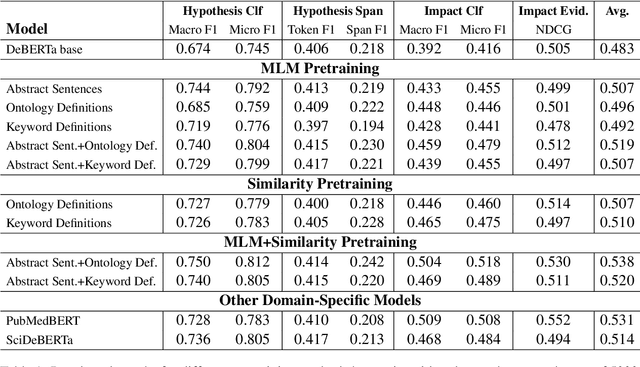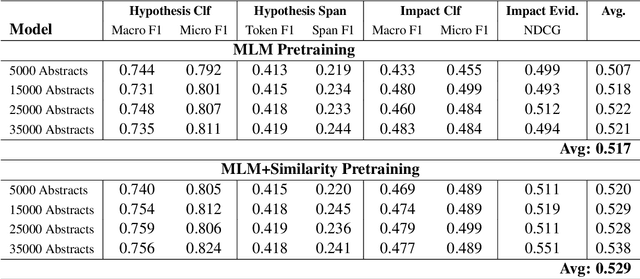Tarek Al Mustafa
Enhancing Domain-Specific Encoder Models with LLM-Generated Data: How to Leverage Ontologies, and How to Do Without Them
Mar 27, 2025



Abstract:We investigate the use of LLM-generated data for continual pretraining of encoder models in specialized domains with limited training data, using the scientific domain of invasion biology as a case study. To this end, we leverage domain-specific ontologies by enriching them with LLM-generated data and pretraining the encoder model as an ontology-informed embedding model for concept definitions. To evaluate the effectiveness of this method, we compile a benchmark specifically designed for assessing model performance in invasion biology. After demonstrating substantial improvements over standard LLM pretraining, we investigate the feasibility of applying the proposed approach to domains without comprehensive ontologies by substituting ontological concepts with concepts automatically extracted from a small corpus of scientific abstracts and establishing relationships between concepts through distributional statistics. Our results demonstrate that this automated approach achieves comparable performance using only a small set of scientific abstracts, resulting in a fully automated pipeline for enhancing domain-specific understanding of small encoder models that is especially suited for application in low-resource settings and achieves performance comparable to masked language modeling pretraining on much larger datasets.
Mining for Species, Locations, Habitats, and Ecosystems from Scientific Papers in Invasion Biology: A Large-Scale Exploratory Study with Large Language Models
Jan 30, 2025



Abstract:This paper presents an exploratory study that harnesses the capabilities of large language models (LLMs) to mine key ecological entities from invasion biology literature. Specifically, we focus on extracting species names, their locations, associated habitats, and ecosystems, information that is critical for understanding species spread, predicting future invasions, and informing conservation efforts. Traditional text mining approaches often struggle with the complexity of ecological terminology and the subtle linguistic patterns found in these texts. By applying general-purpose LLMs without domain-specific fine-tuning, we uncover both the promise and limitations of using these models for ecological entity extraction. In doing so, this study lays the groundwork for more advanced, automated knowledge extraction tools that can aid researchers and practitioners in understanding and managing biological invasions.
 Add to Chrome
Add to Chrome Add to Firefox
Add to Firefox Add to Edge
Add to Edge